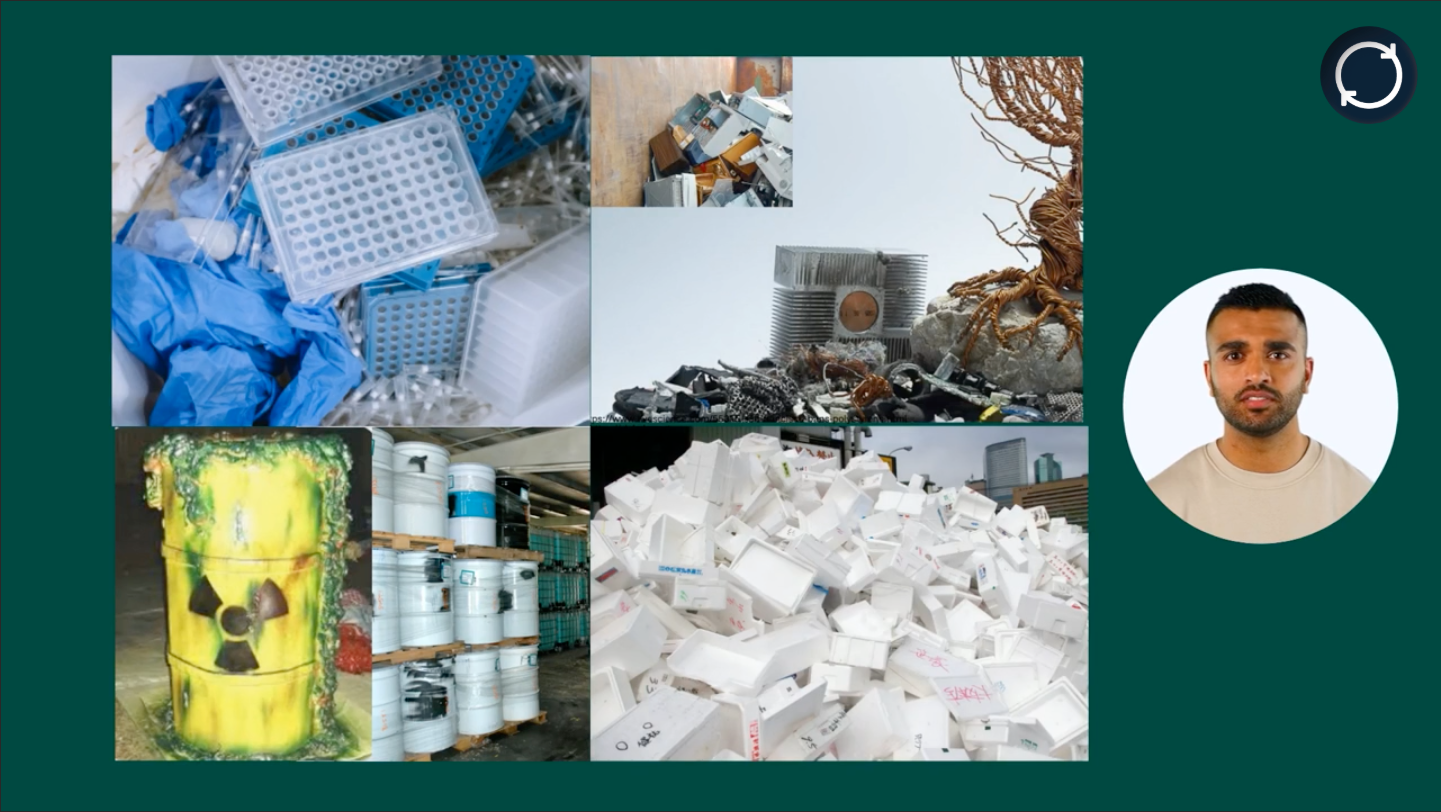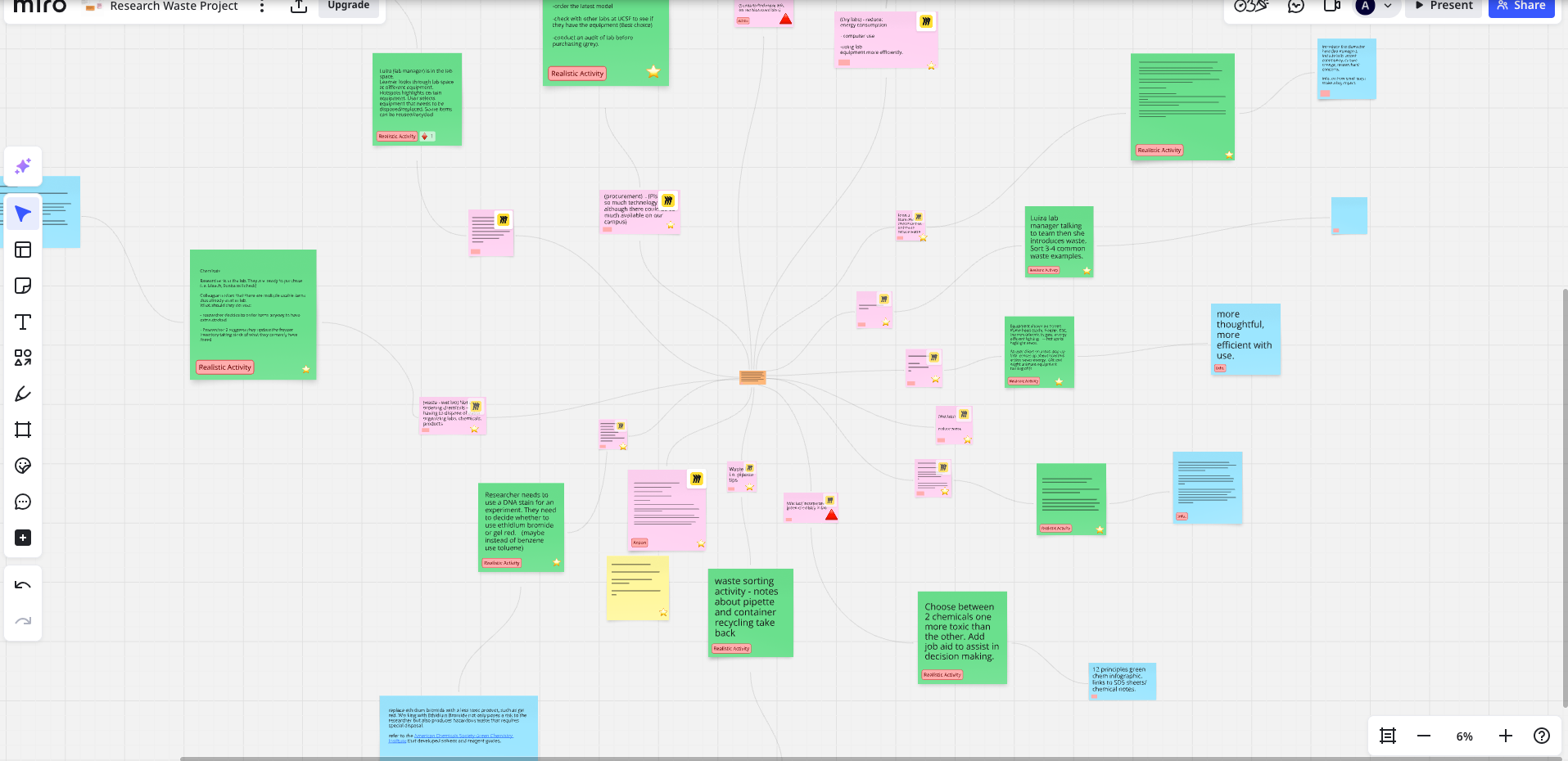Overview
This course was developed in close collaboration with our Subject Matter Expert (SME) team. The project began with a detailed 11-page Word document packed with valuable information and resources. While the content was rich, it needed to be transformed into a dynamic, learner-centered experience.
Audience
Researchers, lab managers, and staff working in laboratories.
Responsibilities
Instructional design
Accessibility
Action mapping
eLearning development
Testing
Toolkit
Storyline 360
Miro
Synthesia
Photoshop
Adobe XD
Problem
Laboratories generate significant waste. This combined with excessive purchasing impacts environmental sustainability. The challenge was to build a “Think Twice” mindset—encouraging staff to pause before acting, reduce waste, and make responsible choices. The goal was to shift lab culture toward sustainable, regenerative practices for a better future.
Solution
An interactive course built in Articulate Storyline:
Used branching scenarios to personalize content for different lab roles and minimize cognitive load.
Storytelling was woven throughout the course using characters and scenarios, inviting learners to make decisions and explore the consequences of their choices in a safe, simulated environment.
Leveraged a custom visual identity with earthy greens and infographics that reinforced the sustainability theme.
Instructional Design Process
Action Mapping
I kicked off the design process with action mapping to help the SMEs clarify the core goal of the course. Together, we identified the specific behaviors learners needed to perform to achieve that goal. These insights allowed me to design realistic, interactive activities that were both relatable and engaging.
Accessibility was built into every layer of the course—from the use of captions and alternative text to color contrast, proper focus order, and the option to avoid non-consensual media. Every learner was considered in the experience.
Visual & UX Design
Visual design, creating custom infographics and incorporating earthy, green tones helped to reflect the theme of sustainability. The end result was a cohesive, visually compelling course that not only informed but inspired learners to take meaningful action in the lab.
Results and Feedback
Implementation:
Course was deployed campus wide through the organization’s LMS and received a feedback rating of 5/5. Users noted the course to be informative while offering practical and actionable steps.
Evaluation:
Following delivery, performance change will be measured through waste audits and lab sustainability surveys with the goal of achieving reduced lab waste, improved sustainable practices, and increased employee engagement in sustainability initiatives.
“Thanks so much for all your hard work creating the Environmental Sustainability in the Lab training! We really appreciated your patience with us, as it was our first time putting together a training like this. We are so happy with the end result, and I hope we get to work together again in the future!”



